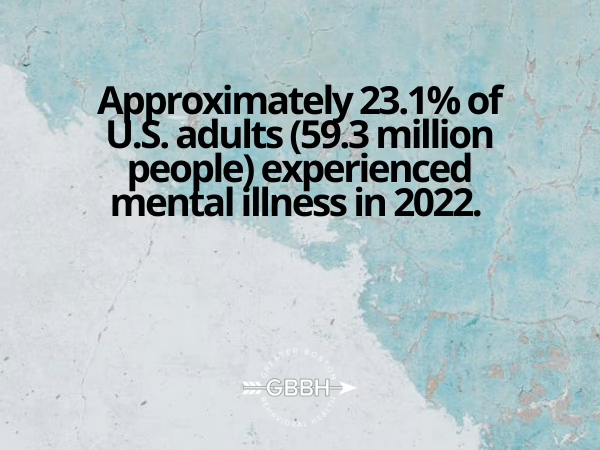Maintaining good mental health isn’t just about seeking professional care during times of crisis—it’s about making behavioral health practices a consistent part of daily life. Just as we exercise and eat well to take care of our physical health, mental well-being requires ongoing attention and effort.
In this blog, we’ll explore why integrating behavioral health into your daily routine is essential and how you can start prioritizing your mental and emotional well-being every day.
Understanding Behavioral Health
Behavioral health encompasses emotions, thoughts, and behaviors that impact overall well-being. It includes managing stress, anxiety, depression, and other mental health concerns. Unlike common misconceptions, behavioral health is not just about mental illness; it’s about fostering healthy habits and coping mechanisms to navigate daily challenges effectively.
Why Behavioral Health Matters
- Enhances Emotional Resilience: Life is unpredictable, and unexpected events can cause stress and anxiety. A strong behavioral health routine helps individuals develop coping strategies to handle difficulties without becoming overwhelmed.
- Improves Relationships: Effective communication, empathy, and self-awareness are essential in personal and professional relationships. Behavioral health programs like Dialectical Behavior Therapy (DBT therapy) and Cognitive Behavioral Therapy (CBT therapy) can help individuals build these skills.
- Reduces Risk of Mental Health Disorders: Regular attention to behavioral health can help identify early signs of mental health issues and address them before they escalate.
- Enhances Productivity and Focus: Behavioral health strategies can improve concentration, decision-making, and motivation, leading to better performance in work and personal life.
Why Integrating Behavioral Health into Your Routine is Essential
Many people only seek mental health care when they are in crisis mode, but proactively managing behavioral health can prevent problems from escalating. Regular mental health care is just as important as routine physical health check-ups.
1. Reduces Stress and Anxiety
Chronic stress and anxiety can disrupt daily functioning, affecting work, relationships, and overall happiness. Engaging in daily mental health practices helps regulate stress hormones, improve emotional balance, and enhance overall resilience.
Example:
Practicing CBT Therapy techniques, such as challenging negative thoughts, can help individuals stay calm in stressful situations.
2. Improves Emotional Regulation
By consistently working on emotional intelligence and regulation, individuals can:
- Better manage anger and frustration
- Avoid emotional outbursts or impulsive decisions
- Improve communication and relationships
Example:
Using DBT Therapy skills, such as mindfulness and distress tolerance, can help individuals pause before reacting to emotions impulsively.
3. Strengthens Coping Mechanisms for Challenges
Life is unpredictable, and difficult situations are bound to arise. Having healthy coping strategies in place ensures that individuals can:
- Navigate setbacks without feeling overwhelmed
- Avoid unhealthy behaviors like substance use or social withdrawal
- Maintain stability even in times of hardship
Example:
A person enrolled in an Intensive Outpatient Program may learn structured coping mechanisms that help them stay focused on recovery outside of therapy sessions.
4. Supports Long-Term Recovery from Mental Health Conditions
For individuals managing conditions like depression, anxiety, or PTSD, ongoing mental health care is key to relapse prevention. Creating daily habits that support behavioral health reduces the risk of returning to negative thought patterns or destructive behaviors.
Example:
A person in a Residential Treatment Program may establish a daily self-care routine that includes meditation, journaling, and therapy sessions to reinforce recovery.
Ways to Integrate Behavioral Health into Your Routine
1. Practice Mindfulness and Stress Management
Mindfulness practices, such as meditation and deep breathing exercises, help regulate emotions and reduce stress. Participating in an Anger Management Program can also teach techniques to manage frustration and avoid impulsive reactions.
2. Seek Professional Support
Engaging in Mental Health Treatment Programs can be beneficial, especially for those dealing with anxiety, depression, or trauma. These programs provide tools to manage emotional distress effectively. If you are in the Boston area, consider reaching out to a Mental Health Treatment Center in Boston for expert guidance.
3. Engage in DBT and CBT Therapy
DBT therapy teaches people how to regulate feelings, boost their relationships, and manage unease. It is very good for people dealing with overwhelming emotions. Similarly, CBT therapy is excellent at modifying negative behaviors and developing healthier ways of handling difficult situations.
4. Maintain a Balanced Lifestyle
A healthy diet, regular exercise, and proper sleep are essential for behavioral health. Poor physical health can contribute to stress, anxiety, and mood swings.
5. Build a Support System
Surrounding yourself with supportive friends, family, or a therapist can provide emotional stability and encouragement. Peer support groups also offer a sense of community and shared experiences, promoting recovery and resilience.
6. Address Anger Management in Recovery
For individuals overcoming substance abuse or other behavioral issues, Anger Management in Recovery is a critical component. Learning how to manage anger constructively prevents relapse and strengthens emotional well-being.
7. Prioritize Self-Care and Relaxation
Taking breaks, engaging in hobbies, and setting boundaries are essential self-care practices. Whether it’s reading, painting, or taking a walk, engaging in enjoyable activities helps relieve stress.
The Role of Mental Health Treatment Centers
Professional support plays a vital role in behavioral health. Those in Boston can benefit from specialized programs offered by a Mental Health Treatment Center. These centers provide individualized treatment plans, therapy sessions, and holistic approaches to mental well-being.
How Greater Boston Behavioral Health Can Help
At Greater Boston Behavioral Health, we believe that mental well-being is a lifelong commitment. Our Mental Health Treatment Center in Boston offers comprehensive therapy programs designed to support individuals at all levels of care.
Our Behavioral Health Services Include:
✔ Inpatient Treatment Program – 24/7 support for individuals in crisis
✔ Residential Treatment Program – Structured, long-term mental health care
✔ Intensive Outpatient Program (IOP) – Flexible therapy for continued support
✔ DBT Therapy & CBT Therapy – Evidence-based approaches for emotional regulation
✔ Group & Family Therapy Programs – Community-based support for mental well-being
Our goal is to help individuals create sustainable mental health habits that lead to long-term emotional balance.
Conclusion
Integrating behavioral health into your daily routine is not a one-time effort but a continuous process. By adopting strategies like stress management, professional therapy, and self-care, you can significantly enhance your mental and emotional well-being. If you’re seeking professional help, Greater Boston Behavioral Health offers comprehensive programs tailored to your needs. Get your first step toward a better and more joyful lifestyle today!
If you or a loved one is looking for comprehensive behavioral health services in Boston, we are here to help. Call GBBH at (888)278-0716 to learn more about our Mental Health Therapy Programs and begin your journey toward better well-being.
FAQ on Integrating Behavioral Health
Why is integrating behavioral health into daily life important?
Behavioral health practices help manage stress, anxiety, depression, and emotional well-being by fostering healthy habits, improving emotional regulation, and preventing mental health crises.
What are simple ways to improve behavioral health daily?
Some effective daily strategies include:
- Practicing mindfulness and meditation
- Engaging in physical activity to reduce stress
- Maintaining a consistent sleep schedule
- Seeking professional therapy support when needed
- Building healthy routines for stability
How does therapy help in maintaining behavioral health?
Therapies like CBT Therapy and DBT Therapy teach individuals how to identify negative thought patterns, regulate emotions, and develop coping strategies for daily challenges.
What behavioral health services are available in Boston?
At Greater Boston Behavioral Health, we offer:
- Inpatient Treatment Programs for crisis care
- Residential Treatment Programs for long-term support
- Intensive Outpatient Programs (IOP) for structured therapy
- Mental Health Therapy Programs tailored to individual needs
How do I know if I need professional behavioral health support?
If stress, anxiety, anger, or emotional struggles impact your relationships, work, or daily life, seeking professional mental health care can provide the tools needed for long-term well-being.


